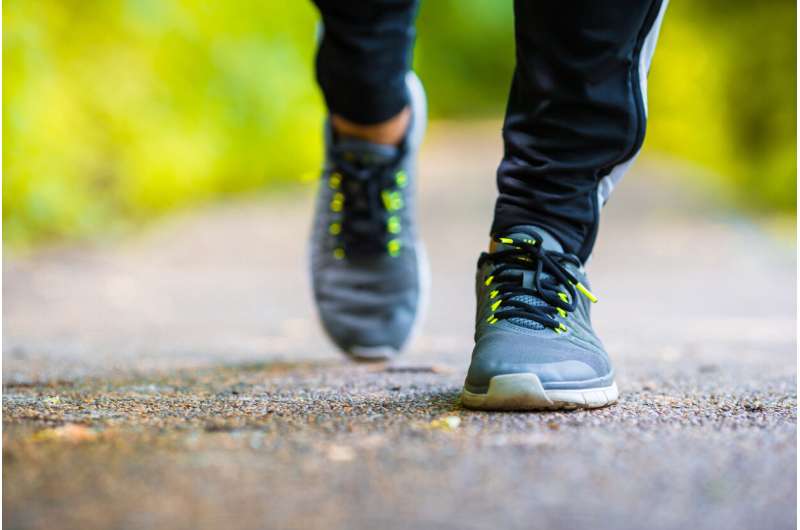#Anxious individuals identified by analyzing their walking gait

Table of Contents
“Anxious individuals identified by analyzing their walking gait”

Can you identify if someone is anxious based on how they walk? That’s what students at Clarkson University wanted to know. Now their research has been published in Sensors. It is part of the Special Issue Analysis of Biomedical Signals and Physical Behavior Sensing in the Development of Systems for Monitoring, Training, Controlling, and Improving Quality of Life.
The article, “Identifying Individuals Who Currently Report Feelings of Anxiety Using Walking Gait and Quiet Balance: An Exploratory Study Using Machine Learning” explored whether computers can identify whether someone is anxious or not based on their walk.
The study was conducted by alumna Maggie Stark, current students Ryan McCarthy and Emily Locke, postdoctoral scholars Ahmed Ali Torad, Ahmed Mahmoud Kadry, and Mostafa Ali Elwan, and Dylan Bradley, a student at SUNY Canton. The students worked with Associate Professor of Physical Therapy Ali Boolani on the project.
Emily and Ryan expressed great gratitude for working with Ali. Emily said that she pushed herself, and she learned to “take on large research projects and never stop asking questions.” Ryan stated that he always learns something new working with his team by “being challenged to broaden his skill set.”
Previously many published studies reported that feelings of anxiety can affect a person’s gait and balance. Therefore, this group was interested in using machine learning to determine if they could identify participants who were anxious based on their balance and how they walked.
Each participant filled out a questionnaire to measure their feelings of anxiety. Then, they had to complete a balance test and a two-minute walk while wearing sensors. Based on these data, the team determined the young people who report being anxious walk in a way that’s very similar to older adults who are fearful of falling. They find that young, anxious adults are constantly scanning for threats from side to side while walking and have trouble turning. The researchers also reported that anxious people have worse balance than those who are anxious.
However, when the researchers tried to see if they could identify individuals who were anxious in their study, they found that the best method for identifying anxious individuals was walking. The team successfully identified people who were anxious with 75% accuracy, which is in line with the two other studies that have been previously published on this work. Based on their findings, the researchers believe that if they are able to collect data on more individuals, their models would be more accurate. Ali and his research team are currently completing data collection on a larger study to see if they can get better results.
Maggie Stark et al, Identifying Individuals Who Currently Report Feelings of Anxiety Using Walking Gait and Quiet Balance: An Exploratory Study Using Machine Learning, Sensors (2022). DOI: 10.3390/s22093163
Citation:
Anxious individuals identified by analyzing their walking gait (2022, May 6)
retrieved 6 May 2022
from https://techxplore.com/news/2022-05-anxious-individuals-gait.html
This document is subject to copyright. Apart from any fair dealing for the purpose of private study or research, no
part may be reproduced without the written permission. The content is provided for information purposes only.
If you liked the article, do not forget to share it with your friends. Follow us on Google News too, click on the star and choose us from your favorites.
For forums sites go to Forum.BuradaBiliyorum.Com
If you want to read more Like this articles, you can visit our Science category.




